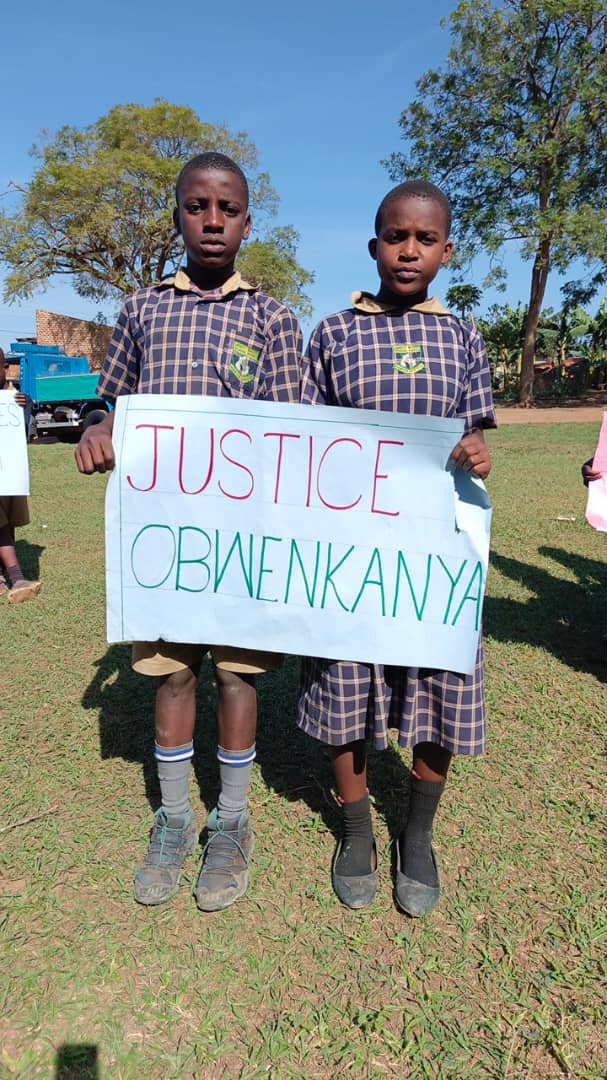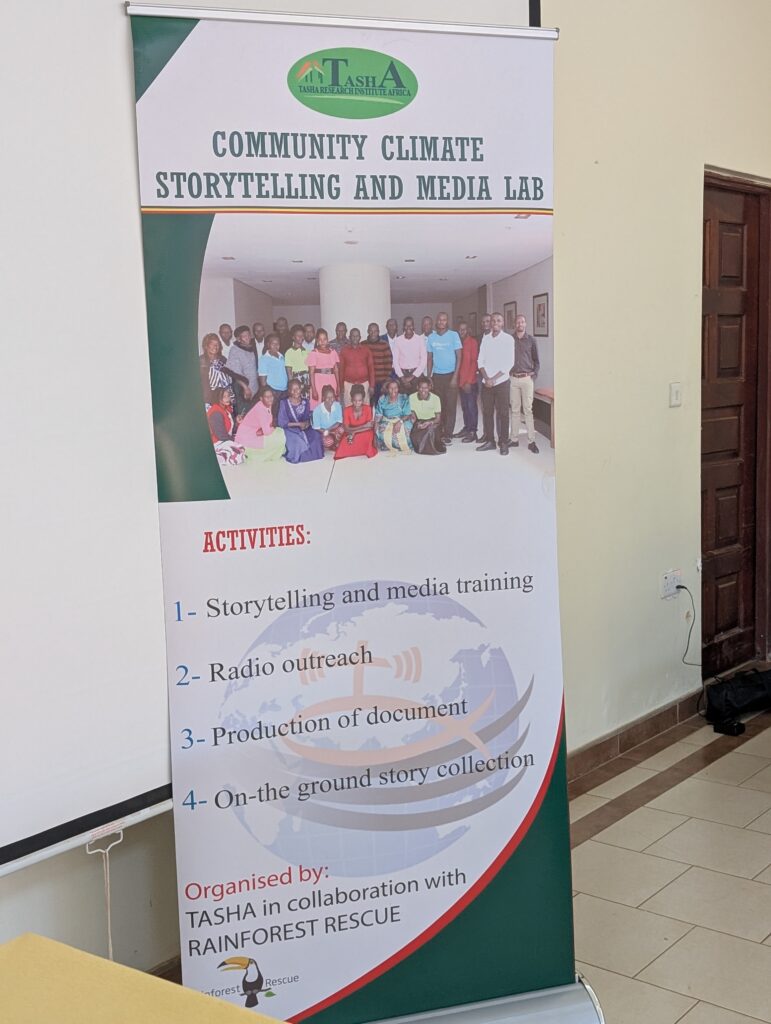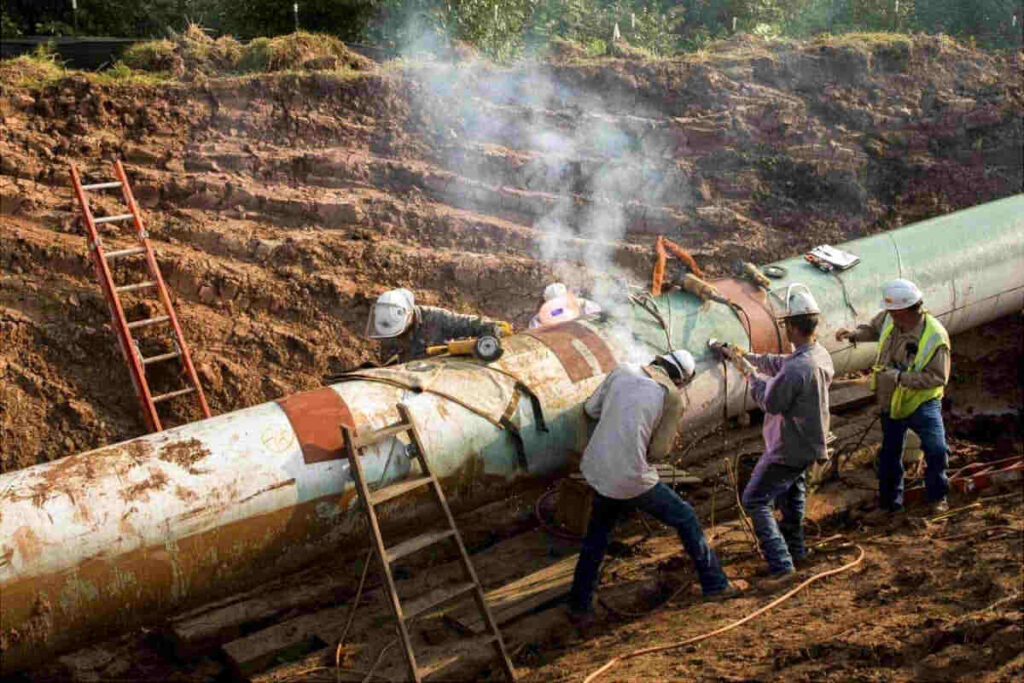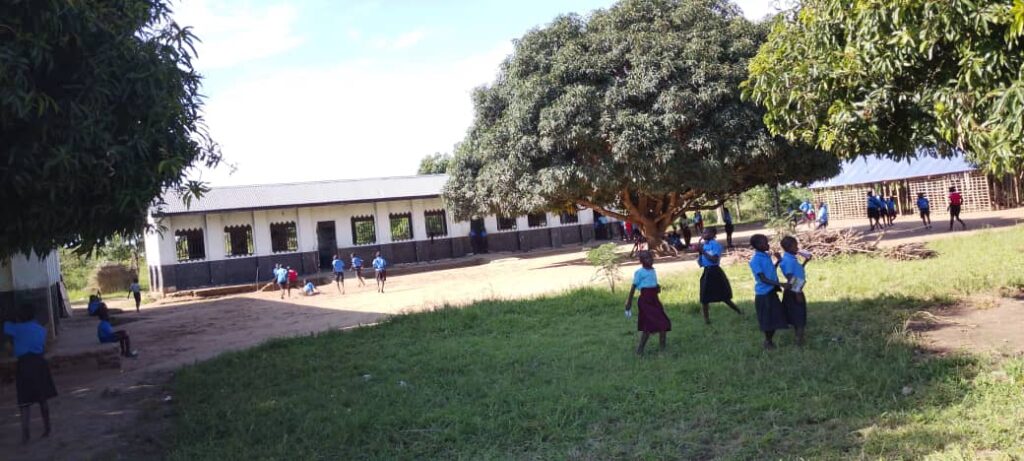In the Albertine region as in other areas that are set to be ravaged by the EACOP and Tilenga projects, displaced farmers are discovering that compensation is less of a right and more of a bureaucratic weapon. Documents from TotalEnergies, paired with field testimonies collected by our observers in Buliisa and Hoima, reveal a pattern of delays, opaque procedures, and outright denial of payment – a system that strips rural families of their land and livelihoods while shielding the oil company and state officials from accountability.
In Buliisa and Hoima farmers displaced by the East African Crude Oil Pipeline (EACOP) are increasingly realizing that compensation is less of a right and more of a bureaucratic weapon. Documents from TotalEnergies, paired with field testimony collected in Hoima, reveal a pattern of delays, opaque procedures, and outright denial of payment – a system that strips rural families of their land while shielding the oil company and state officials from accountability.
One compensation file illustrates the fraud with chilling clarity. The case of Wimana Fred is marked “paid,” yet the accompanying note concedes he never saw a shilling. Instead, his money was deposited in the Bank of Uganda, “under court control,” after authorities claimed he was “inaccessible.” On paper, the company closed the case; in reality, Wimana lost both his land and his livelihood
An August 2025 monitoring report from the Tasha Research Institute Africa shows the same pattern on the ground. In Kyakasato village, a subcontractor arrived to compensate farmers without even inspecting the fields or valuing their crops. “They decided to use the old agreement of CICO which had several problems,” wrote observer Bahinkya Nicholas. “Some PAPs had sold part of their land… people had planted new crops which also needed to be compensated”
. Instead, TotalEnergies’ partner simply dusted off an outdated contract, erasing new realities and silencing fresh claims.
Frustrated PAPs took their complaints to the Resident District Commissioner and the LC5 chairman (complaint letter pictured below). None have received justice. “This has annoyed the PAPs,” Nicholas noted dryly – a restrained phrase for farmers robbed twice: first of their land, then of their rightful compensation.
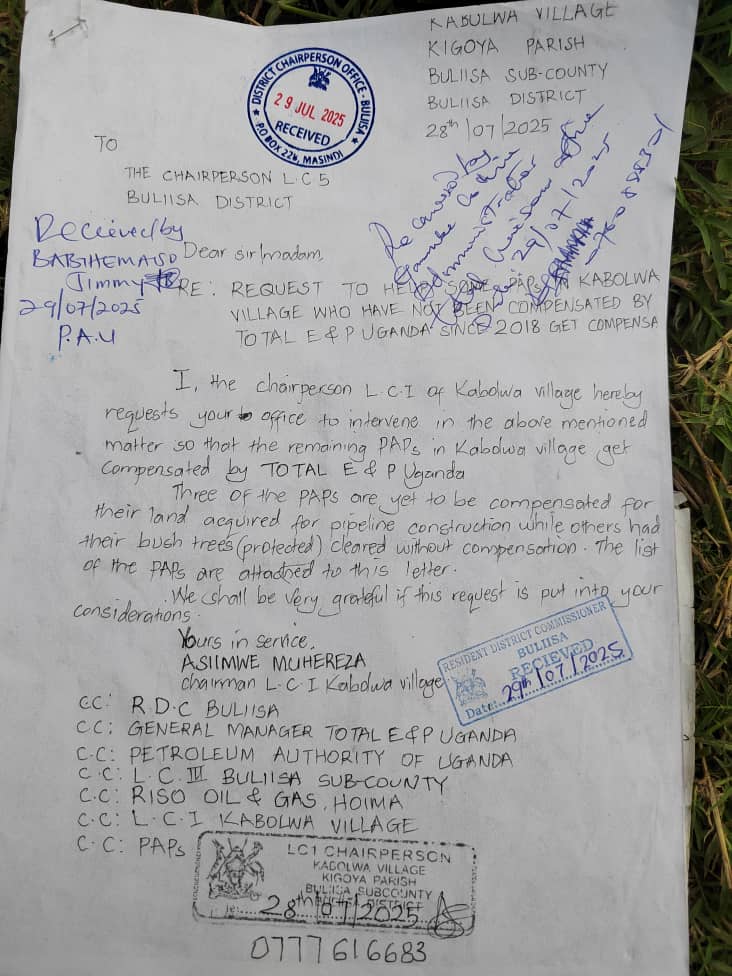
The appearance of order in TotalEnergies’ spreadsheets – numbers, dates, signatures – collapses under scrutiny. Behind the bureaucratic façade lies a systematic strategy: shift blame between contractors, consign payments to court accounts, recycle obsolete agreements, and leave families trapped in a legal maze they cannot navigate.
For TotalEnergies and the Ugandan government, this process provides cover: a semblance of legality, a trail of paperwork to appease investors. For the communities of Hoima and beyond, it is dispossession disguised as compensation.th chilling clarity. The case of Wimana Fred (see picture below)is marked “paid,” yet the accompanying note concedes he never saw a shilling. Instead, his money was deposited in the Bank of Uganda, “under court control,” after authorities claimed he was “inaccessible.” On paper, the company closed the case; in reality, Wimana lost both his land and his livelihood.
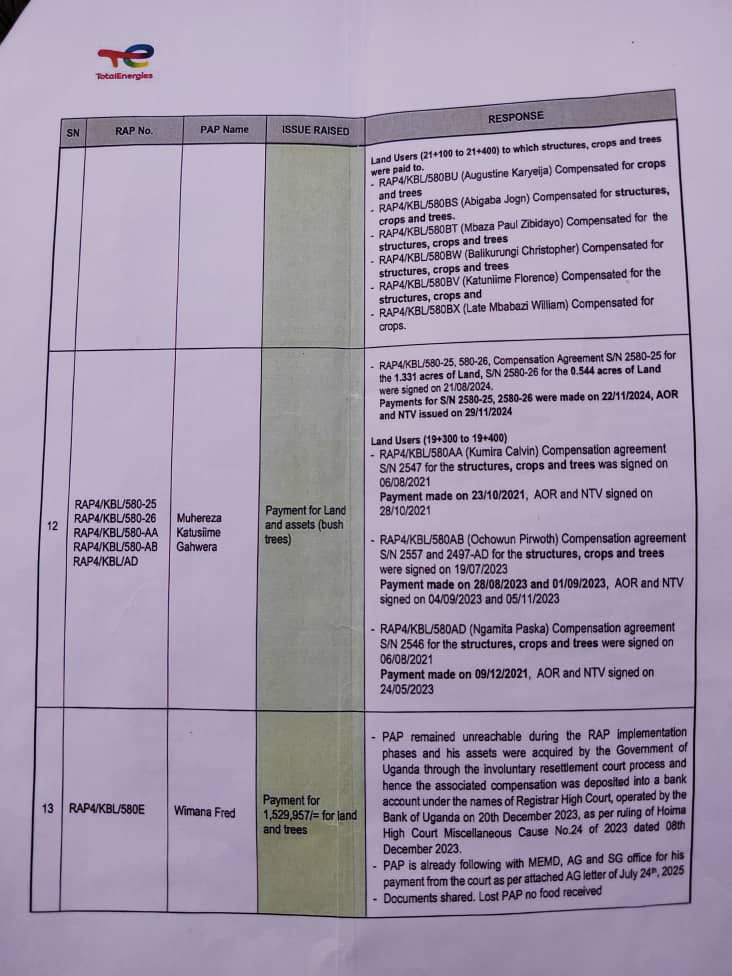
Over the years reports from the Tasha Research Institute Africa ground observers shows the same pattern on the ground. Recently in Kyakasato village, a subcontractor arrived to compensate farmers without even inspecting the fields or valuing their crops. “They decided to use the old agreement of CICO which had several problems,” wrote observer Bahinkya Nicholas. “Some PAPs had sold part of their land… people had planted new crops which also needed to be compensated”. Instead, TotalEnergies’ partner simply dusted off an outdated contract, erasing new realities and silencing fresh claims.
Frustrated PAPs took their complaints to the Resident District Commissioner and the LC5 chairman. None have received justice. “This has annoyed the PAPs,” Nicholas noted dryly – a restrained phrase for farmers robbed twice: first of their land, then of their rightful compensation.
The appearance of order in TotalEnergies’ spreadsheets – numbers, dates, signatures – collapses under scrutiny. Behind the bureaucratic façade lies a systematic strategy: shift blame between contractors, consign payments to court accounts, recycle obsolete agreements, and leave families trapped in a legal maze they cannot navigate.
For TotalEnergies and the Ugandan government, this process provides cover: a semblance of legality, a trail of paperwork to appease investors. For the communities of Hoima and beyond, it is dispossession disguised as compensation.

